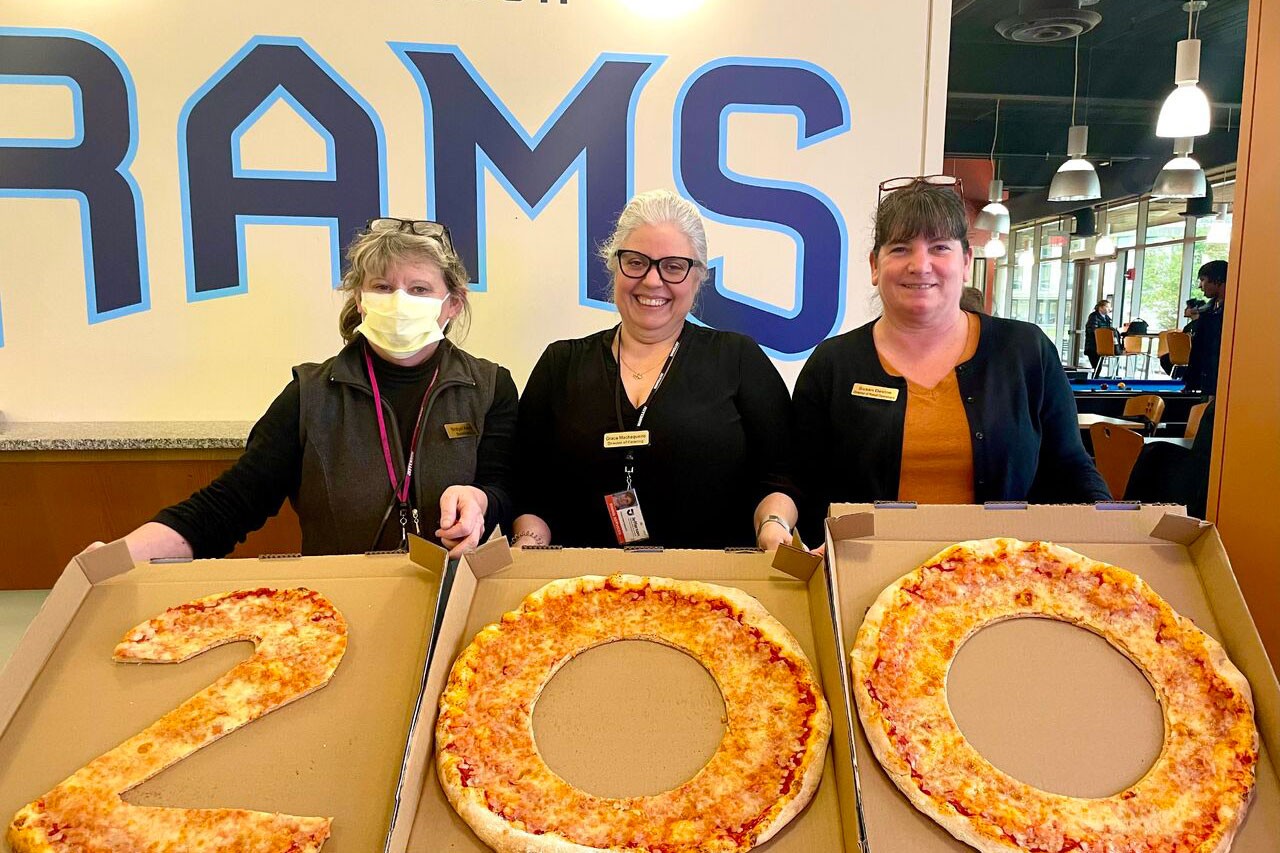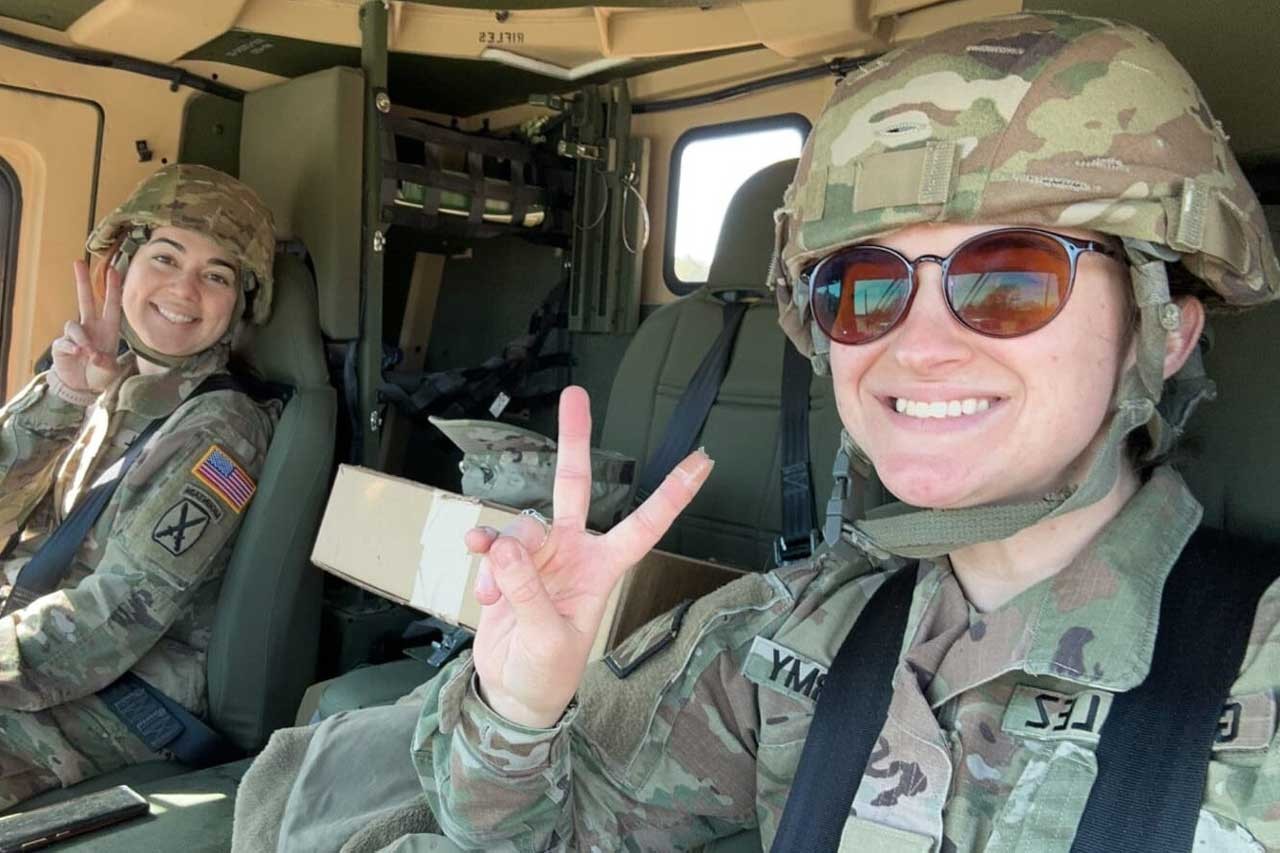
Capturing the Experiences of New Mothers During COVID-19
New moms participate in a research project to document the early weeks of motherhood with photos and reflect on the challenges and adaptations of the pandemic.
When MD-MPH student Elizabeth Critchlow walked into the post-partum unit at Jefferson Health - Center City in the fall of 2020 , she bore witness to a myriad of emotions: from the unadulterated joy of new parents holding their newborns, to the overwhelm and anxiety of navigating an entirely new life. Also palpable was the undercurrent of uncertainty that the COVID-19 pandemic has brought to all our lives. For birthing individuals and their families, it has complicated an already complex time. Critchlow, and Rosie Frasso, PhD, program director of public health at the Jefferson College of Population Health wanted to find out how new mothers were navigating these challenges.
“There has been some literature over the course of the pandemic identifying the stressors related to pregnancy and postpartum life during this time,” says Critchlow. “But as we near the second anniversary of the start of the pandemic, there’s still much we don’t know about the impact on new families. We wanted to give new moms a chance to share their stories with us.”
These early pandemic experiences were captured through a research project that Critchlow and Dr. Frasso embarked on, with a multidisciplinary team of population health researchers, student interns and clinical providers, including Rebecca Mercier, MD, MPH, assistant professor and OB-Gyn doctor.
“As healthcare providers, this work is critical in informing how we can better guide and serve these populations during the pandemic,” says Dr. Mercier. “But it also gives us a deeper understanding of systemic issues in postpartum care and where the gaps are.”
In order to enable the study participants to document their experiences as authentically as possible, the researchers used an approach called photo-elicitation: 30 cis-gendered women who were between 3 to 10 weeks postpartum were asked to take photographs during their daily routines. From breastfeeding and managing virtual learning for their older children, to waving at grandparents from behind the safety of a window, these women captured intimate details of their new lives. To gain a deeper understanding behind the intention of the pictures, Critchlow and fellow MD-MPH student Lyena Birkenstock then interviewed each mom over the phone. These interviews, which took place between December 2020 and April 2021, enabled women to open up about their experiences, with the photos acting as guiding prompts. As part of the study protocol, the women consented to share their photos, and any quotes from the interviews were anonymized.
Critchlow says that the vast majority of their participants were eager to share their stories, and wanted the researchers and clinicians to know more about the specific challenges they faced. A recurring issue these conversations revealed was fear about keeping newborns safe from the threat of the virus. This fear was exacerbated by rapidly changing guidelines from public health authorities on the threat of the virus to infants and young children.
For participants with older children, there was the added stress of having to care for their needs like virtual schooling, meals, playtime etc., while concurrently caring for a newborn. Many women expressed the complexity of ensuring safe interactions between their newborns and older children, and having to restrict outings and interaction with other kids or families. Balancing family care with self-care was also a common sentiment - some women expressed that constantly being needed was overwhelming at times and others shared how they found little moments of quiet for themselves.
For some women, the stress and worry was eased by emotional and physical support of a partner - from rotating child care and feeding responsibilities to providing a listening ear. However, for some, although they valued the support of their partners, they also worried about potential exposures – this put a strain on their relationship.
Many of the participants also described emotional and physical support from family and friends, including help with meals and other supplies. They discussed the importance of connection in the midst of social distancing and quarantining, with many women relying on virtual means to introduce their newborn to their family and friends. These “visits” were critical in dealing with the effects of isolation during the early months of the pandemic.
There were some women who did not have partners, and the need for support was even more intense. Some participants sought out government resources such as SNAP (Supplemental Nutrition Assistance Program), WIC (Special Supplemental Nutrition Program for Women, Infants, and Children) and unemployment assistance. Some women said these resources, and information about them, were already difficult to access, and the pandemic created additional barriers. Normally they would go to physical offices to obtain all the resources they needed at one go, but the risk of exposure meant a new, sometimes piece-meal process. On the other hand, others described getting assistance over the phone or the computer was more convenient and felt safer. This adaptation to virtual care or telemedicine also made it easier to access certain programs, online support groups and general information.
“It was really inspiring to see how these women made the best out of their situation and how they identified silver linings of this challenging time,” she says. “Each woman’s journey was so different, but they expressed how it helped to know that they were part of this larger project and that they weren’t alone. We’re so grateful for their openness.”
“Knowing the ways in which women adapted, whether it was connecting to other moms via social media or developing resourcefulness, can help us think about integrating those practices into clinical and social systems,” says Dr. Frasso.
Dr. Mercier adds that the participants sharing their frustration with getting appropriate information indicates that there are needs for pre-emptive action. “We should be able to direct birthing individuals to the appropriate resources and programs once the baby has arrived, but we should also be having conversations about support groups, self-care, and lactation etc. in the prenatal period.”
While the extent of the pandemic’s impact on new parents and their children will not be fully understood for some time, this work sheds light on the unique challenges of bringing new life into the world during times of ongoing flux and stress.
Article Reference: Elizabeth Critchlow, Lyena Birkenstock, Melanie Hotz, Lauren Sablone, Amy Henderson Riley, Rebecca Mercier, and Rosemary Frasso, “Experiences of New Mothers During the Coronavirus Disease 2019 (COVID-19) Pandemic,” DOI: 10.1097/AOG.0000000000004660, Obstetrics & Gynecology, 2022



